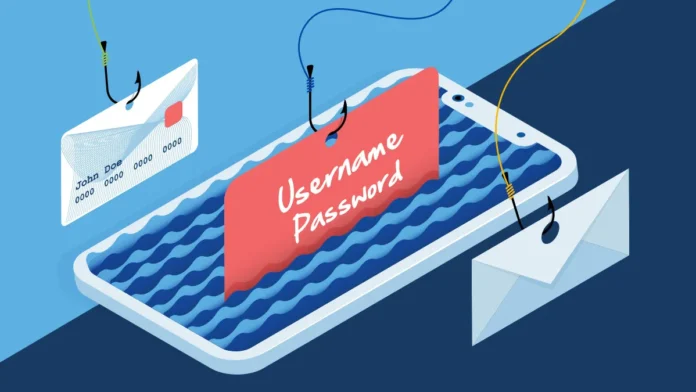In an era dominated by digital communication, the need to protect our online identity has never been more critical. Our text messages, once private and personal, are now susceptible to prying eyes and malicious intent.
Whether it’s safeguarding your personal conversations or preventing identity theft, understanding how to keep your identity hidden while texting is paramount.
Why Texting Privacy Matters in The Digital Age

Texting is one of the most common forms of communication today, and it often involves sharing sensitive information. From personal anecdotes to financial transactions, our messages carry a wealth of data about us.
In the digital age, where data breaches and privacy violations are rampant, ensuring the privacy of your text messages is not just a matter of convenience; it’s a necessity to protect your personal information from potential threats lurking in this website-driven world.
Understanding the Risks of Digital Communication
Before diving into protective measures, it’s crucial to grasp the risks associated with digital communication. Text messages can be intercepted, hacked, or accessed without your consent.
Hackers and cybercriminals are constantly devising new ways to exploit vulnerabilities in messaging apps. By understanding these risks, you can better appreciate the importance of protecting your identity.
Use of Pseudonyms

One effective way to conceal your true identity while texting is by using pseudonyms or creative usernames.
Avoid using your real name or personal information in your username, as this can make it easier for others to track you down. Instead, opt for unique and unrelated aliases that provide an extra layer of anonymity.
Encryption Tools
Encryption is a powerful tool for ensuring the privacy of your text messages. End-to-end encryption ensures that only you and the intended recipient can decipher the content of your messages.
Popular messaging apps like WhatsApp and Signal employ this technology to protect your conversations from hackers and eavesdroppers.
Secure Messaging Apps
Not all messaging apps are created equal when it comes to privacy. Some prioritize security and user anonymity, while others may compromise on these aspects. It’s essential to choose a messaging app that aligns with your privacy concerns.
Signal, Telegram, and WhatsApp are among the top options known for their encryption and security features.
Protecting Your IP Address
Your IP address can reveal your location and potentially compromise your anonymity. Virtual Private Networks (VPNs) serve as a shield by masking your real IP address with a virtual one from a server located elsewhere.
This makes it much harder for anyone to trace your messages back to your physical location.
Avoiding Geolocation Tagging
Many messaging apps and social media platforms have geolocation tagging features that reveal your exact location when sending messages. Disabling this option in your settings is crucial to maintaining your privacy.
Be mindful of sharing location-specific details in your messages, as well, to prevent inadvertent exposure.
Recognizing Phishing Attempts
Phishing attempts can compromise your identity and personal information. Cybercriminals often impersonate trusted entities to trick you into divulging sensitive data.
Be vigilant when clicking on links in messages, especially if they appear suspicious or request personal information. Verify the sender’s identity through alternative means to ensure your safety.
Social Engineering Awareness

Social engineering tactics involve manipulating individuals into divulging confidential information. Be cautious when responding to messages that request personal details, passwords, or financial information, especially if they seem out of the ordinary.
Always verify the authenticity of the sender before sharing any sensitive data.
The Role of Two-Factor Authentication (2 FA)
Beyond encryption and secure messaging apps, an essential aspect of protecting your online identity while texting is implementing Two-Factor Authentication (2FA).
2FA adds an extra layer of security by requiring you to provide two forms of verification before gaining access to your accounts. This usually includes something you know (like a password) and something you have (like a smartphone for receiving a verification code).
Enabling 2FA on your messaging apps and other online accounts can significantly reduce the risk of unauthorized access, even if someone manages to crack your password. It acts as a robust deterrent against hacking attempts and ensures that only you can access your messages and personal information.
The Importance of Regular Software Updates
Many people overlook the significance of keeping their devices and apps up-to-date. Software updates often include security patches that address known vulnerabilities. Ignoring these updates can leave your device and data exposed to potential threats.
Hackers are constantly finding new ways to exploit weaknesses in software. By regularly updating your operating system and messaging apps, you’re not only benefiting from new features but also reinforcing your digital disguise.
This simple but effective practice is a crucial part of maintaining your online privacy.
Establishing Clear Boundaries and Awareness

While utilizing encryption tools and secure messaging apps is crucial, it’s equally important to establish clear boundaries and practice awareness in your digital interactions.
Be cautious about sharing personal information in your texts, even on secure platforms. Always think twice before sending sensitive details and ensure you trust the recipient.
Legal Implications of Online Anonymity
It’s important to note that while protecting your identity online is essential for privacy and security, there are legal and ethical considerations. The use of online anonymity should not be used for illegal activities or harassment. Engaging in such activities can lead to serious legal consequences.
Laws regarding online anonymity vary by country, and it’s essential to understand your rights and responsibilities in your jurisdiction. In many cases, anonymity can protect individuals from unwarranted surveillance, but it should always be used responsibly and within the boundaries of the law.
Conclusion
In the digital age, the need to protect your identity while texting cannot be overstated. From using creative pseudonyms to employing encryption tools and secure messaging apps, there are numerous strategies at your disposal.
Additionally, safeguarding your IP address, avoiding geolocation tagging, and staying vigilant against phishing attempts and social engineering are all crucial components of maintaining your digital disguise.
By embracing these practices and understanding the risks associated with digital communication, you can enjoy a safer online experience while keeping your identity hidden from prying eyes. Remember, your digital security is in your hands, so take the necessary steps to protect yourself and your personal information in the world of texting.




